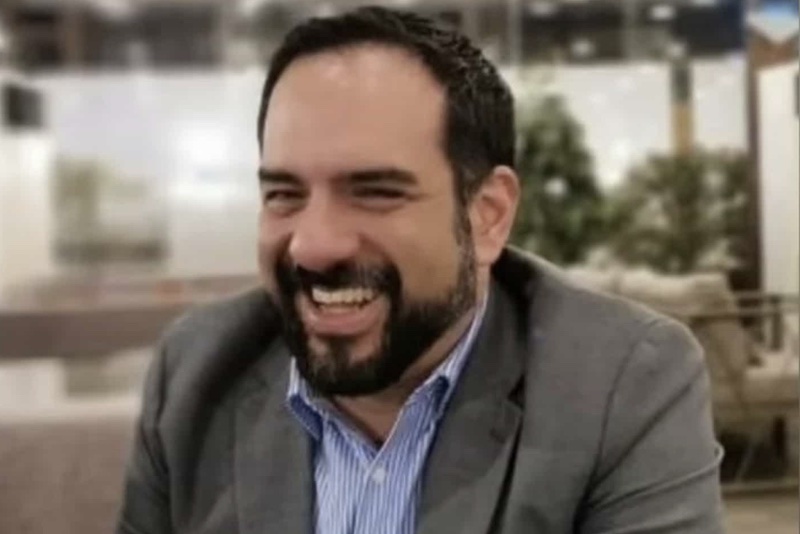Iran has executed two gay men convicted of sodomy, rights group says
Activists claim the men's executions continue the Iranian regime's pattern of violating human rights, especially those of LGBTQI people.

Iran has executed two gay men who were convicted under the country’s anti-sodomy laws and spent six years on death row, according to a human rights group.
The Human Rights Activists News Agency, a group of advocates who speak out against the Iranian government and its alleged human rights abuses, reported the two men who were executed were identified as Mehrdad Karimpour and Farid Mohammadi.
Karimpour and Mohammadi were sentenced to death for “forced sexual intercourse between two men” and hanged in a prison in the northwestern city of Maragheh, more than 300 miles from the capital, Tehran.
Last July, two other men were executed for sodomy-related offenses in Maragheh, the group said. It added that last year, Iran executed 299 individuals, including four convicted of crimes committed as children, and sentenced 85 others to death.
The rights group Iran Human Rights reported that Iranian state-run media had not reported on their execution. The two were accused of raping a 16-year-old boy six years ago, charges the two men denied in court.
Iran Human Rights also noted that defendants accused of rape are often tortured into making false confessions, which are then used to impose the death penalty. Many cases are also rushed through the courts without defendants having access to a lawyer.
Homosexuality and same-sex relations are illegal in Iran, which adheres to sharia, or religious law in the Islamic religion. The country imposes the death penalty for violators of anti-sodomy laws — the same punishment doled out to those convicted of murder, adultery, and armed robbery, among other capital offenses.
Last October, the United Nations’ independent investigator on human rights in Iran, Javaid Rehman, to the UN General Assembly’s human rights committee that Iran continues to implement the death penalty “at an alarming rate,” reports the Jerusalem Post.
The Post also reports that the Iranian regime is estimated to have executed between 4,000 and 6,000 LGBTQI people — including at least one teenager, in violation of international law — since the country’s 1979 Islamic revolution.
Opponents of the Iranian regime have also criticized left-wing political movements, LGBTQ advocacy groups, and democratic nations — especially the United States — for failing to speak out forcefully or issue further sanctions against Iran for its human rights abuses, particularly those targeting the LGBTQI community.
“The Ayatollah regime in Iran just executed two gay men for the crime of sodomy in Iran,” the Iranian-American journalist Karmel Melamed wrote in a tweet featuring pictures of Karimpour and Mohammadi. “Where’s the outrage from U.S. Secretary of State Antony Blinken, GLAAD & other LGBT groups in the US to this horrific crime?!”
British LGBTQI activist Peter Tatchell called for the international community to impose Magnitsky sanctions — in which countries may penalize human rights abusers or those involved in corruption by freezing their assets, prevent them from engaging in financial transactions with domestic nationals, and bar them from entering those countries — on regime officials, judges, and prison staff who authorized the executions.
He also said sanctions should be imposed on those responsible for other human rights violations, including the executions of Kurdish, Baluch and Ahwazi Arab activists on fabricated charges of engaging in “terrorism.”
Last Tuesday, Amnesty International urged Iran to free an Iranian LGBTQI activist, Zahra Sedighi-Hamadani, also known as “Sareh,” who was arrested by the Iranian Revolutionary Guard on Oct. 27. After being place in solitary confinement for 53 days, Sedighi-Hamadan was brought before Iranian prosecutors in January and charged with “spreading corruption on earth” and “promoting homosexuality.”
Amnesty claims the charges stem from her public defense of LGBTQI rights on her social media platforms and for appearing in the BBC documentary, which detailed the abuses of LGBTQI people in the Kurdistan region of Iraq. She had fled Iraqi Kurdistan after being detained by regional authorities there, crossing into Iran in the hope of eventually fleeing to Turkey.
According to the Times of Israel, Sedighi-Hamadani reportedly sent videos, in which she spoke about her activism and condemned abuses of LGBTQI rights, to the Iranian Lesbian and Transgender Network, or 6Rang, asking that the videos be made public in case she failed to make it safely to Turkey.
“We, the LGBTI community, are suffering,” she said in one of the videos, noting that she had previously been tortured and subjected to electrocution for her activism. “Whether through death or freedom, we will remain true to ourselves. … I hope to achieve freedom.”
Support Metro Weekly’s Journalism
These are challenging times for news organizations. And yet it’s crucial we stay active and provide vital resources and information to both our local readers and the world. So won’t you please take a moment and consider supporting Metro Weekly with a membership? For as little as $5 a month, you can help ensure Metro Weekly magazine and MetroWeekly.com remain free, viable resources as we provide the best, most diverse, culturally-resonant LGBTQ coverage in both the D.C. region and around the world. Memberships come with exclusive perks and discounts, your own personal digital delivery of each week’s magazine (and an archive), access to our Member's Lounge when it launches this fall, and exclusive members-only items like Metro Weekly Membership Mugs and Tote Bags! Check out all our membership levels here and please join us today!






















